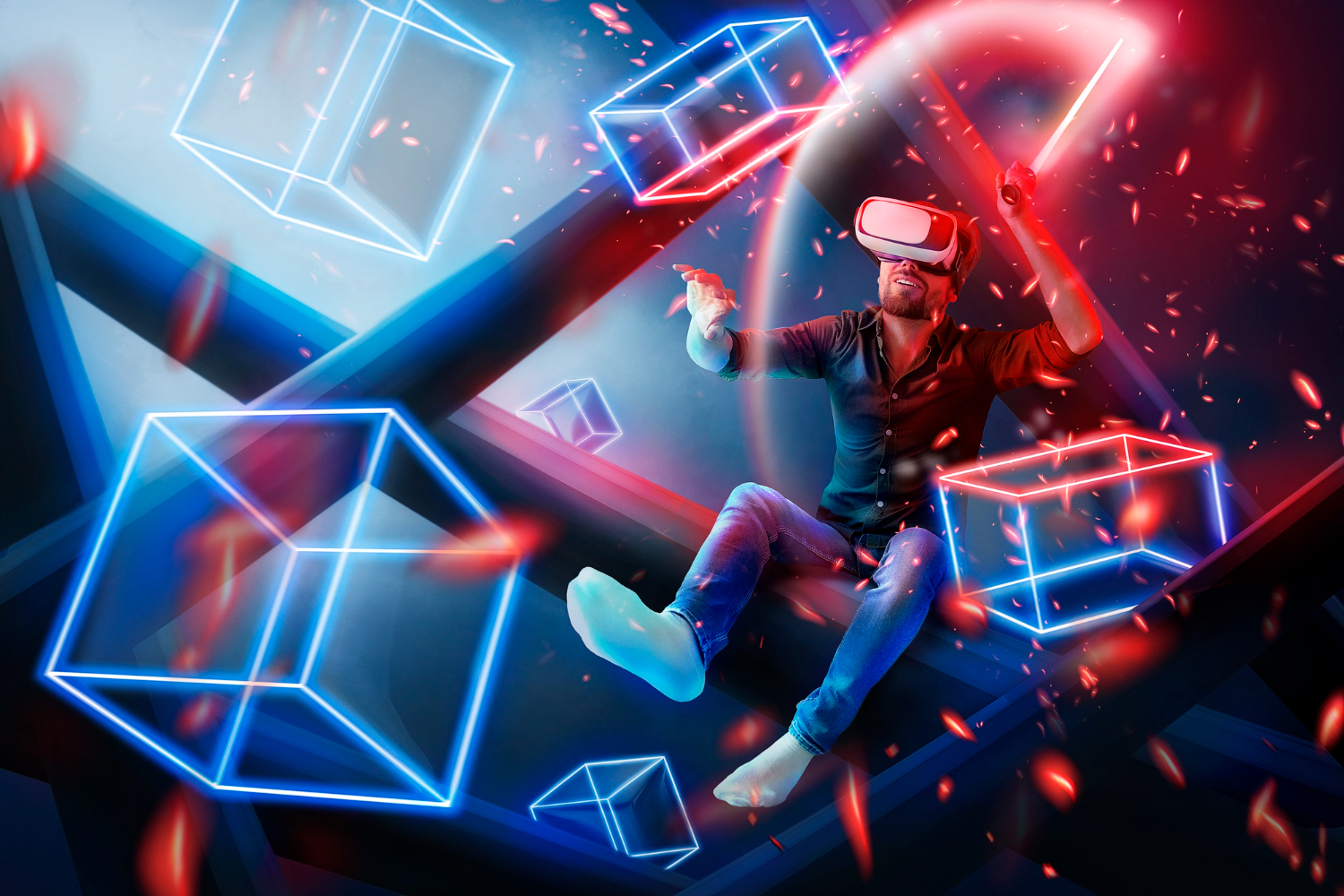The Future of Entertainment: How Game Development is Shaping Tomorrow
In the digital age, entertainment experiences are continually evolving, with game development playing a significant role in shaping the future landscape. From immersive virtual reality experiences to sophisticated artificial intelligence, the world of gaming is driving innovation and pushing boundaries like never before.

Introduction
As technology advances, the entertainment industry is undergoing a transformation, with game development emerging as a key driver of change. In this article, we'll explore how the future of entertainment is being shaped by the evolution of game development and the technologies driving this transformation.
- Evolution of Game Development: Over the years, game development has evolved from simple pixelated graphics to highly realistic immersive experiences. Advancements in hardware and software have enabled developers to create more complex and visually stunning games that captivate audiences worldwide.
Technology Driving Change
- Virtual Reality (VR): Virtual reality technology has revolutionized gaming by providing immersive experiences that transport players to virtual worlds. With VR headsets becoming more accessible, developers are exploring new ways to create engaging and interactive gaming experiences.

- Augmented Reality (AR): Augmented reality blends digital elements with the real world, allowing for unique gaming experiences that overlay virtual objects onto the user's environment. Games like Pokémon GO have demonstrated the potential of AR to create social and interactive gaming experiences.
- Artificial Intelligence (AI): Artificial intelligence is playing an increasingly important role in game development, powering everything from intelligent NPCs to procedural generation algorithms. AI-driven systems can adapt to player behavior, creating dynamic and personalized gaming experiences.
Impact on Entertainment Industry
The influence of game development extends beyond the gaming industry, shaping the broader entertainment landscape. Interactive storytelling techniques pioneered in games are being adopted in other forms of media, blurring the lines between traditional and digital entertainment.

- Gaming Communities and Social Interaction: Gaming has become a social activity, with online communities forming around shared interests and experiences. Platforms like Twitch and Discord have transformed gaming into a social experience, enabling players to connect, collaborate, and compete with others from around the world.
Changing Business Models
- Subscription Services: Subscription-based gaming services are gaining popularity, offering players access to a library of games for a monthly fee. Services like Xbox Game Pass and PlayStation Now provide a convenient and cost-effective way to enjoy a wide variety of games without the need to purchase individual titles.
- Microtransactions and In-Game Purchases: Microtransactions and in-game purchases have become common in modern gaming, allowing developers to monetize their games beyond the initial purchase price. While controversial, these business models have enabled developers to offer free-to-play games while still generating revenue.

Challenges and Opportunities
- Diversity and Inclusivity: As the gaming industry continues to grow, there is a growing push for diversity and inclusivity in game development and representation. Developers are increasingly recognizing the importance of creating games that reflect the diverse experiences and perspectives of players worldwide.
- Ethics and Regulation The rapid advancement of technology in gaming raises ethical concerns around issues such as data privacy, addiction, and the impact of violent or inappropriate content on players, particularly children. Striking a balance between innovation and responsible development is essential for the future of gaming.

Conclusion
Game development is at the forefront of shaping the future of entertainment, driven by advancements in technology, changing business models, and evolving player expectations. As developers continue to push the boundaries of creativity and innovation, the possibilities for the future of gaming are endless.
FAQs:
- What role does virtual reality play in shaping the future of gaming?
Virtual reality technology offers immersive experiences that transport players to virtual worlds, revolutionizing the gaming experience.
- How are subscription-based gaming services changing the industry?
Subscription services like Xbox Game Pass provide access to a library of games for a monthly fee, offering players a convenient and cost-effective way to enjoy a wide variety of titles.
- What are some of the ethical concerns surrounding game development?
Ethical concerns in game development include issues such as data privacy, addiction, and the impact of violent or inappropriate content on players, particularly children.
- How are gaming communities influencing the social aspect of gaming?
Platforms like Twitch and Discord have transformed gaming into a social experience, enabling players to connect, collaborate, and compete with others from around the world.
- What opportunities does game development present for diversity and inclusivity?
There is a growing push for diversity and inclusivity in game development and representation, with developers recognizing the importance of reflecting the diverse experiences and perspectives of players worldwide.
